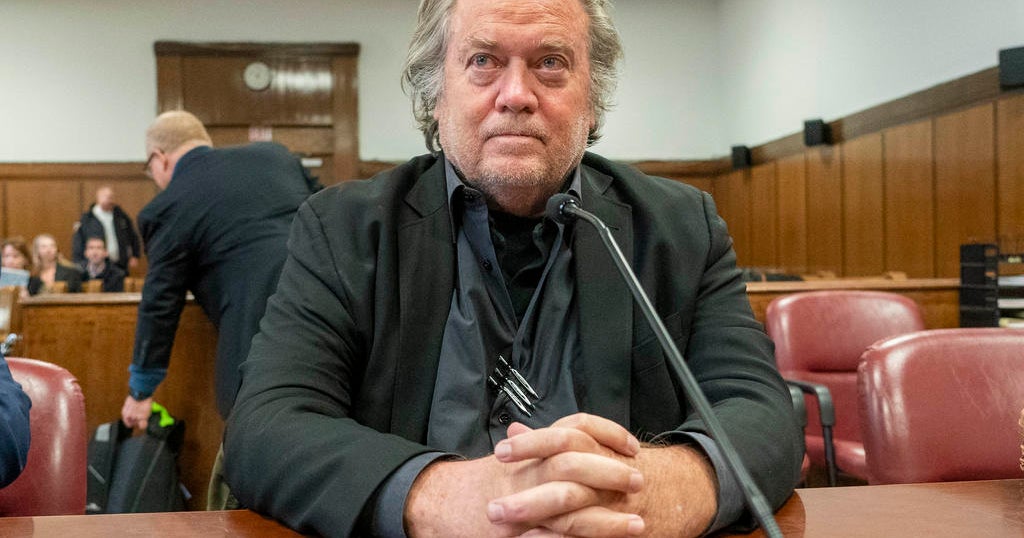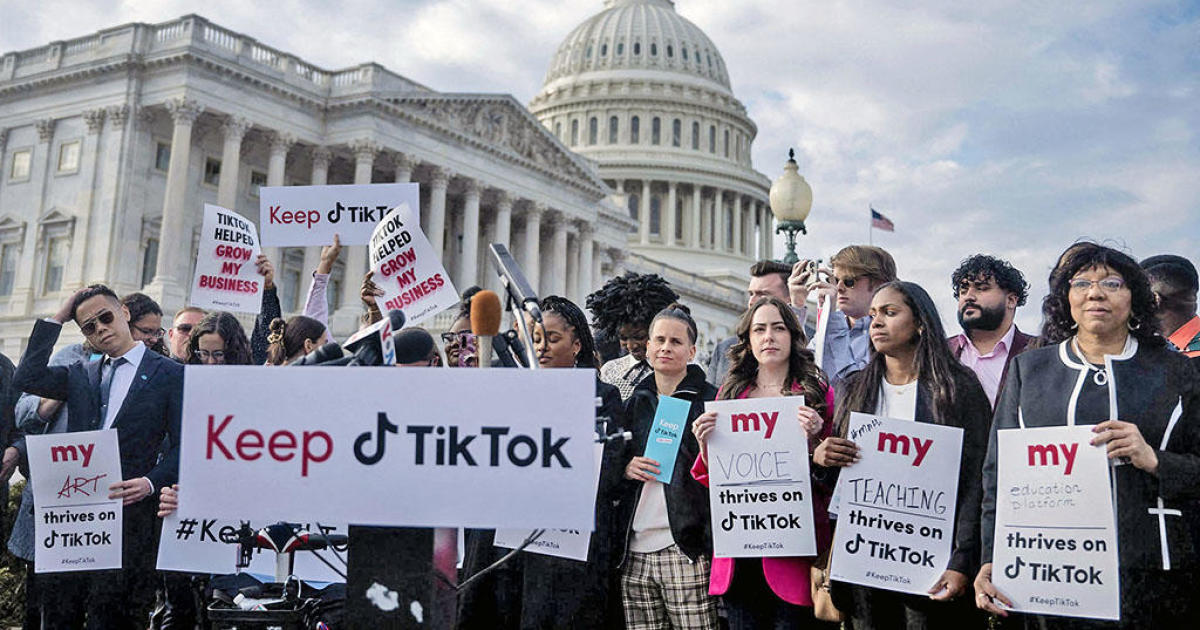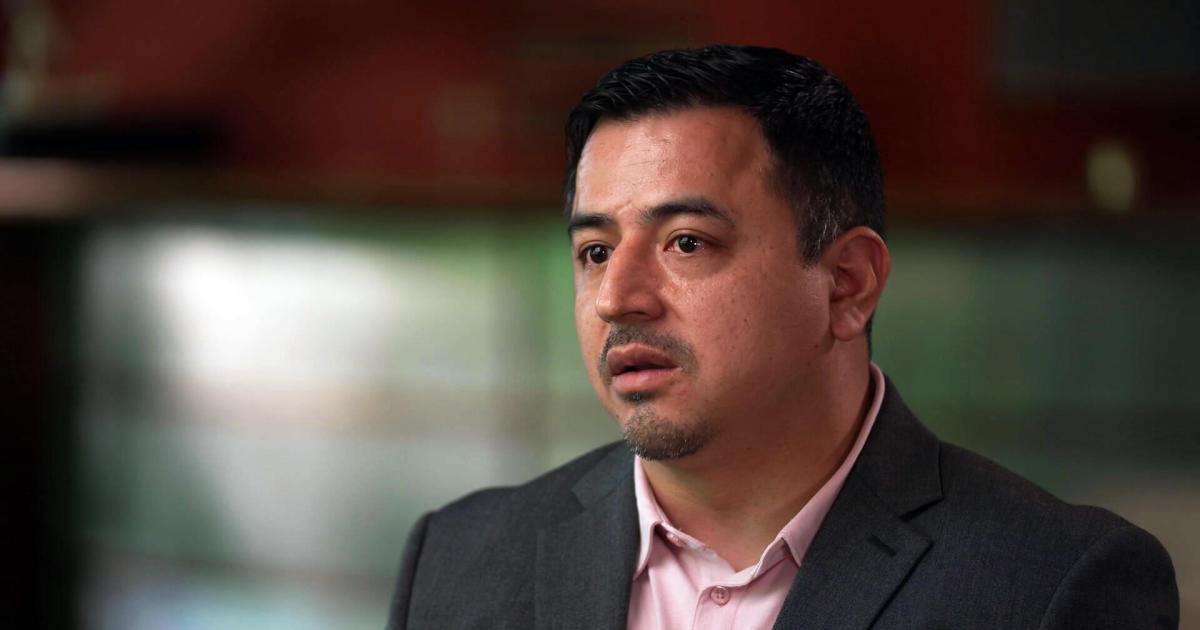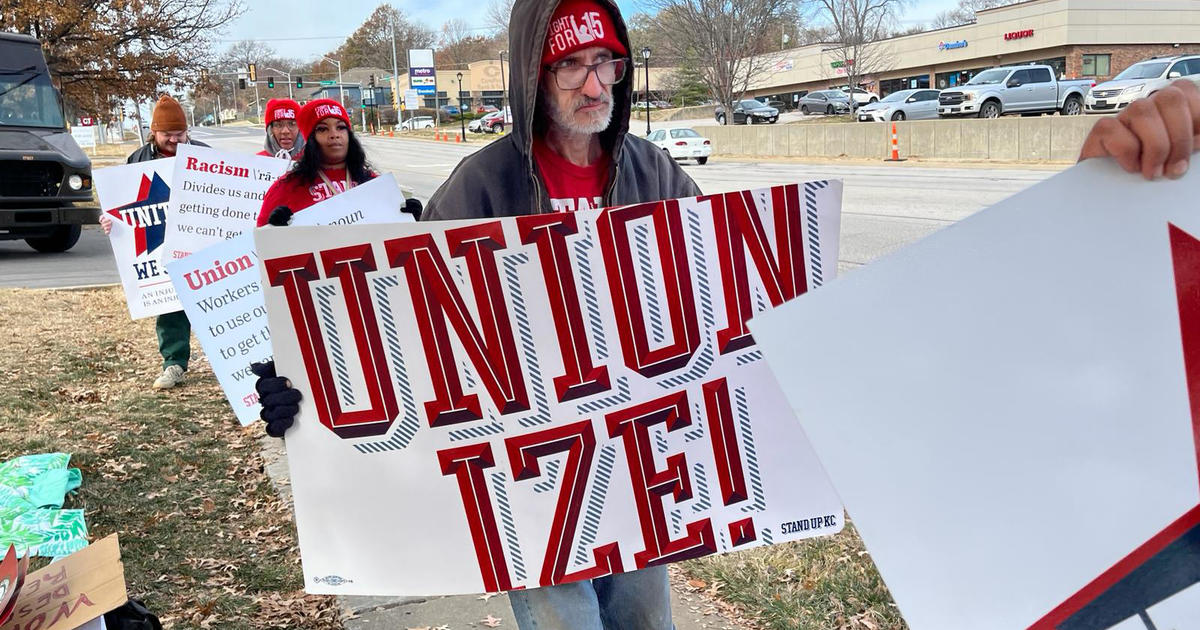Transcript: New members of Congress on "Face the Nation," January 6, 2019
The following is a transcript of the interview with Reps. Colin Allred, Jahana Hayes, Max Rose and Mikie Sherrill that aired Sunday, Jan. 6, 2019, on "Face the Nation."
MARGARET BRENNAN: All of you just came to Washington at a time when a quarter of this government is shut down. All of you took a vote to reopen the government but Leader McConnell in the Senate has said that is just a waste of time and political posturing. Where do we go from here Congresswoman?
REPRESENTATIVE MIKIE SHERRILL: Well, I don't think it's a waste of time. We voted on the most bipartisan bill we could vote on, the one that was passed recently by the Senate, within the last month. And so I think what we're asking Congress to do is its job, and pass a bill that's going to re-open the government.
MARGARET BRENNAN: But passing a bill that re-opens the government comes up against this hard line position the president has taken which is he wants border security, specifically a border wall, adequately funded. Do you see, Congressman, room to move beyond that existing level of one-point-three billion dollars, how do you get to the five he wants?
REPRESENTATIVE COLIN ALLRED: Well, let's be very clear. He doesn't want border security. We have border security in this bill that we passed and we are willing to negotiate on border security. There is a difference though, between border security and then building a wall that we don't need and that will be a waste of money. A five billion dollar price tag is a lot of money. There's a lot of things we can do instead of that.
MARGARET BRENNAN: Is it just a matter of semantics here? Border fence, some kind of barrier? I mean, is there movement for Democrats to support what the president in some way is asking for?
REP. ALLRED: Well let me say, I'm from Texas. We have fencing in place, there is a significant amount of fencing, in fact, in place and there is a big difference between wasting money on something that maybe will be just a campaign promise versus something that will actually get the job done. Fencing in certain places is absolutely appropriate and we do have that.
MARGARET BRENNAN: Congressman, what is the impact of the shutdown? I mean, there is some calculation here that this could go on for weeks, if not months, because it's not really being felt. Are you seeing that in your district?
REPRESENTATIVE MAX ROSE: Absolutely. Look we all are. We all have federal workers in our district. This is a national disgrace. There's a lot of talk here about national security and border control and we need that. But we also have to talk about the fact that a shutdown should never be used in this country as a negotiating tactic.
MARGARET BRENNAN: So, Speaker Pelosi has called the wall an immorality. She said, "no way, no how, is the president gonna get money for it." That's a pretty hard line position versus where the president is. Do you find any room for compromise in the middle?
REP. ROSE: The room for compromise is talking about how we can deal with the crises that we are currently facing. Right now, at our ports of entry fentanyl and other very serious drugs is just streaming right in. We don't--
MARGARET BRENNAN: You think the ports are a bigger issue than the southern border?
REP. ROSE: I think that we have serious issues throughout the country. The point here is that what I'm not willing to do is spend billions of dollars on what amounts to a vanity project -- a fifth century solution to a 21st century problem. What, you want to also bring horses back to the United States cavalry? Bring some rowboats to the Navy? We can put Trump's name on it. This is far more serious than just political brinkmanship, okay? Let's get back to work. It's why we all ran and I know it's what the Republicans are interested in doing it- doing as well. And I promise you, if they did that their voters will reward them, okay. This is not political suicide.
MARGARET BRENNAN: Congresswoman, if a compromise is reached in the Senate, where you see some kind of increased funding for border security, call it a wall, call it some kind of fence, but something put on the table for Democrats. Do you see your- your fellow House members getting on board?
REPRESENTATIVE JAHANA HAYES: Well I think- I apologize I lost my voice yesterday. But I think the government shutdown is a sobering reality of where we are right now. We have to get to work. We cannot keep operating in hard lines. We cannot keep saying nobody's willing to move. We have to move. That's why we were elected. That's what we were sent here to do. We have to get back to work.
MARGARET BRENNAN: So you would be open--
REP. HAYES: Absolutely.
MARGARET BRENNAN: --to voting for increased border security beyond the one-point-three billion that all of you signed off on already?
REP. HAYES: I think we have to look at the bigger problem of immigration reforming our immigration system, not just a wall.
MARGARET BRENNAN: So would all of you - yes or no - vote for something that put an offer on the table for Democrats, like protections for DREAMers or protections for those coming here under extraordinary circumstances like temporary protected status.
REP. ALLRED: Well, I think it's important to see what's in the package. And it's- I think it's hard for any of us to say. I think all of us at this table came to Congress to work in a bipartisan fashion, to get things done. We're trying as hard as we can right now to be bipartisan. We need some bend from the other side as well.
PART 2
MARGARET BRENNAN: Another topic, of course, all of you haven't been on the job very long, but very quickly -- we did see one of your colleagues introduce articles of impeachment. The House Oversight Chairman, Elijah Cummings, said that's premature. What do you all think? Is it too soon?
REPRESENTATIVE MIKIE SHERRILL: I- I think so. I'm a former federal prosecutor and we certainly never made charging decisions before the FBI finished their investigation. I think we've got to let Mueller finish his investigation, see what evidence he finds, and then we can make some decisions.
MARGARET BRENNAN: You're waiting on the Mueller Report?
REP. SHERRILL: I am.
REPRESENTATIVE COLIN ALLRED: It's absolutely premature. This is way too early to be talking about this. We need to let the investigation run its course. And I just think that it's- it's also something that can be used as a partisan lightning rod that we need to try to avoid.
MARGARET BRENNAN: What about the tone of this conversation? One of your colleagues, Congresswoman from Michigan, was speaking to supporters and used a profanity, and said you know, impeachment should be what we're talking about. What do you think of, maybe not the language, but the- the premise of what's being talked about?
REPRESENTATIVE MAX ROSE: Well, I'm from Staten Island. I have no problem with profanity, okay? Well what- what I have a problem with though is the fact that she is talking about this issue and urging action on this issue before the investigation has been completed, that will just continue this era of hyper-partisanship that we have to move away from. I-I-I certainly object to it.
MARGARET BRENNAN: Congresswoman?
REPRESENTATIVE JAHANA HAYES: Premature.
MARGARET BRENNAN: Premature.
REP. HAYES: The gravity of that word is too big and too important to just throw it around.
MARGARET BRENNAN: I want to also ask you about some of the things you campaigned on. Congresswoman, as we said, you're from Connecticut. In your home state- that was the site of the Sandy Hook shooting. I know you've talked a bit, given your time in the classroom, and you've thought a lot about this. What is it that you think can actually get done? What are you going to try to do about gun control?
REP. HAYES: Well, I think that, any conversation about arming teachers is not the response to gun control. I think we have to have background checks. We have to make sure that we are getting guns off the street.
MARGARET BRENNAN: So would you commend the Trump administration for this ban on bump stocks that recently happened?
REP. HAYES: Yes--
MARGARET BRENNAN: But not enough?
REP. HAYES: --It's a first step.
MARGARET BRENNAN: It's a first step.
REP. HAYES: Yes.
MARGARET BRENNAN: Congressman Rose, you served in Afghanistan as we said in your introduction. Both President Obama and President Trump have wanted to draw down troops from that war zone. What do you think of that idea of a drawdown or a full withdrawal?
REP. ROSE: Well there's been a larger problem in terms of the way in which we have tried to overcome 21st century threats, and that is that we are fighting sequential one year engagements without any type of long term strategy. So the key here in Afghanistan, because we saw in Iraq, the invasion of Iraq was absolutely foolish. But then we did a speedy withdrawal, which I believe was motivated by politics, and then we had to go right back in. We cannot afford to do the same thing in Afghanistan, but we also have to come to the realization that the only way in which we will stabilize that country is with some type of political reconciliation with the Taliban and it's our responsibility, as the part of an international coalition, to provide the freedom and the space for that political reconciliation to be realized. And I intend on playing a part in trying to contribute to that.
MARGARET BRENNAN: And that is not a small ask either to get diplomatic talks with the-with the Taliban underway, and the administration is trying to do that--
REP. ROSE: No, it absolutely isn't. But we have been at war in Afghanistan now for 17 years. To put things into perspective, people are now enlisting in the United States military who were born after 9/11. We cannot just have perpetual war. But we also have to maintain our leadership on the global stage, which means that when we make a commitment, we stand by it, and we don't just try to exercise politics on the global stage. We need to have a long term strategy not governed by tweets--
MARGARET BRENNAN: That sounds like what the Trump administration is suggesting.
REP. ROSE: Well, what I just saw was a announcement about a withdrawal like that, which took everyone by surprise. I believe that that's playing politics and that's a shame. I don't want to see Americans put at risk. I've watched loved ones get hurt. I don't want to see that if it's unnecessary. But I just want us to have a long term strategy that realizes the fact that politics is what matters here, it's the United States military's job to provide that room for diplomacy to take its action.
MARGARET BRENNAN: Congresswoman, you've also served, as we said in the introduction. What do you think? Do you support not just Afghanistan, a drawdown but a withdrawal in total?
REP. SHERRILL: You know what I would add to what Max is saying, and what I think is lost a little bit in the discussion of Trump's strategy, is this idea that we don't have a good plan with our allies. We are always at our strongest as a country when we are moving forward with our traditional allies, and NATO for example, that is when we're able to get the space to have diplomatic relations, which when we bring world approbation to bear. And so, when we're in an era where we're treating our traditional adversaries better than our allies, I think that is making it more and more difficult for us to operate from a point of power on the world scene.
MARGARET BRENNAN: But do you support a drawdown?
REP. SHERRILL: I think we certainly need to be talking about how we end these wars, but I don't think you can do it and say, you know, as we just announced in Syria we're just pulling out. You have to have that long term strategy and that is a piece that's missing.
MARGARET BRENNAN: Congressman, this week, not only a new week in Congress, but also the beginning it seems of the 2020 presidential campaign season-- I know, get ready. You just finished your own campaigns, I know you're sort of, wow.
REP. ROSE: Exhausted.
MARGARET BRENNAN: It's exhausting but it's beginning. Who do you think, as people who just ran competitive and successful races, how do you win as a Democrat in 2020 in a presidential race?
REP. ALLRED: You know, I think that 2020 is going to be about 2020, and it's not going to be about 2018. There are certainly lessons you can learn I think from some of our races. I think there--
MARGARET BRENNAN: Like what?
REP. ALLRED: I think there's a hunger out there for people who are willing to speak honestly, who aren't just so poll tested and-and holding back on what they're really thinking. I think there's also a hunger out there for people who are trying to solve problems instead of just carrying a partisan better. I think the country needs to heal, the divisions are growing and I think that we need a uniter to be our nominee.
MARGARET BRENNAN: Do you have anyone in mind from your home state?
REP. ALLRED: Well, I certainly like my former boss, Julian Castro, who is a friend of mine and a mentor of mine. And-and we have a lot of political talent in Texas so--
MARGARET BRENNAN: What about the rest of you?
REP. ROSE: I'm supporting Mikie.
(LAUGHTER)
REP. ROSE: But if I could just have one important thing. It's obvious that election season's starting again. But what we can't do is campaign in the halls of Congress. When it comes to things like infrastructure and reducing health care costs, we can't say "oh I don't want to give this president a win because it might improve his chances in 2020."
MARGARET BRENNAN: Is that what you think is happening now in the House?
REP. ROSE: I think that there's the potential that it could happen. We've only been governing now for 24 hours. There's the potential that we could say, man there's all this opportunity for consensus, think about draining the swamp right? Everybody's running on anti-corruption now. But in order for us to do something we have to be bipartisan which means is going to win. If all we're thinking about is 2020, that's going to be a big, big problem and the American people are going to suffer.
REP. SHERRILL: I think if we're going to win as Democrats, we need to run the kind of races that form broad coalitions. The way we took back the majority of the House is through districts like mine. The 11th district of New Jersey, where I ran on a - with a broad coalition of people on issues that everyone in my district, from progressive to conservatives agree, on. Things like infrastructure reform, things like bringing down health care costs, things like really, you know, focusing on our environment and how we move forward now, not in 50 years. Making sure we have universal background checks for gun purchases. These are things that the majority of Americans agree on and the Democrats are always at their strongest when they're focused on families and they're focused on issues that are going to move people forward.
MARGARET BRENNAN: And all of that requires working with a Republican Senate and Republican President. And all of you are willing to do that?
REP. ROSE: Here's the shocking thing though, 2016 and 2018 were not that different. It's just different political parties won. If you think about what Donald Trump ran on, okay? If you put some of the racist stuff aside for a moment, which is difficult I know, but he spoke about infrastructure, he spoke about drug costs, he wants to protect Medicare and Social Security, draining the swamp. We ran on many of those same things, the American people right now are united, that they want sensible solutions to deal with the things that really cause them pain and suffering. And now it's our responsibility to actually do something about it.
MARGARET BRENNAN: Thank you very much for this conversation. I wish you all luck as lawmakers. Welcome to Washington.



